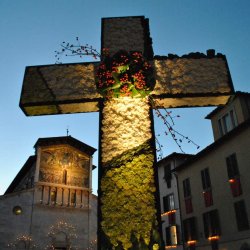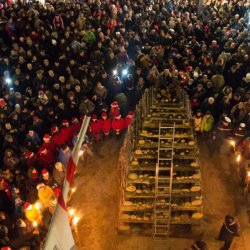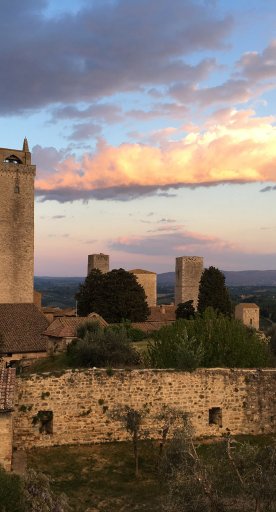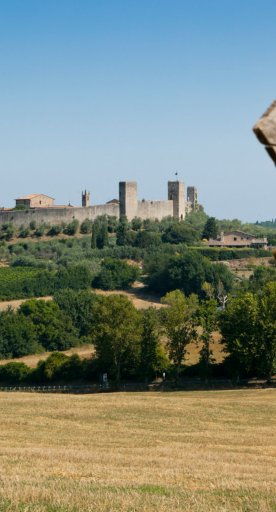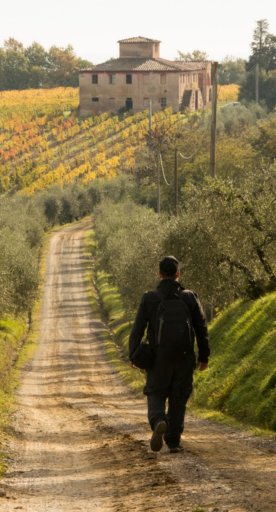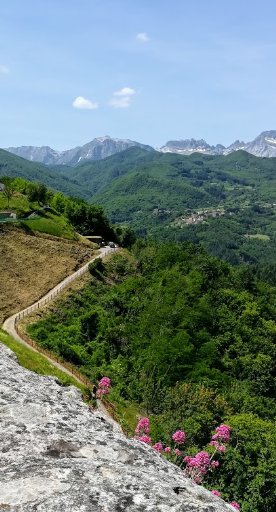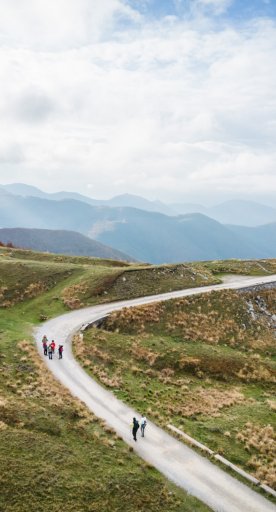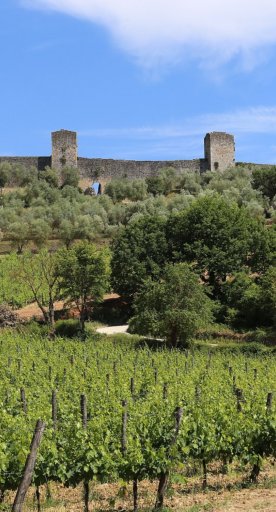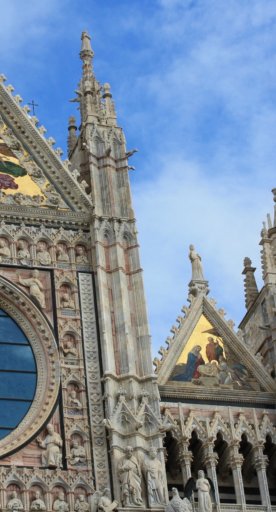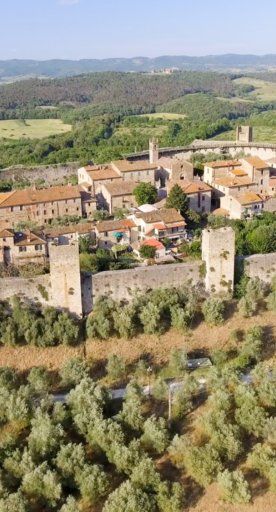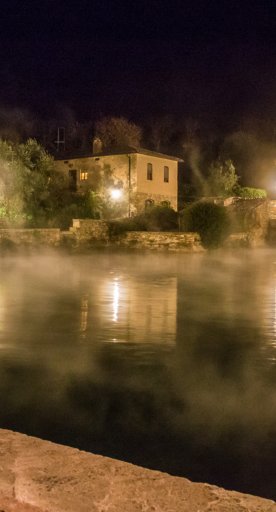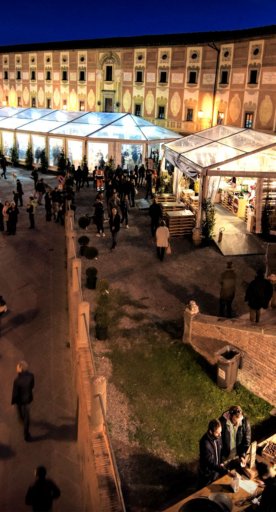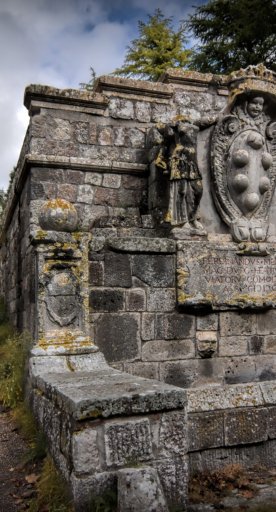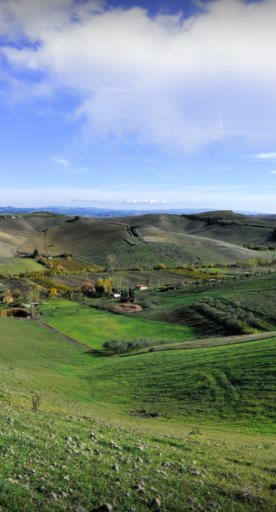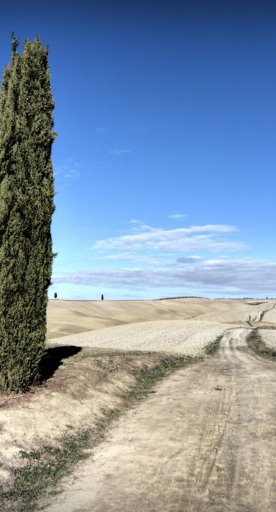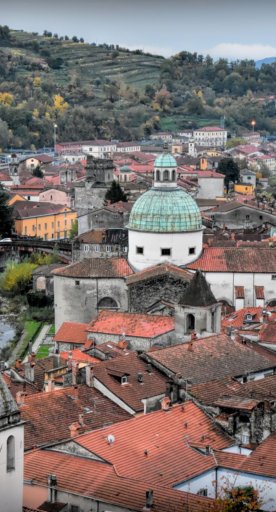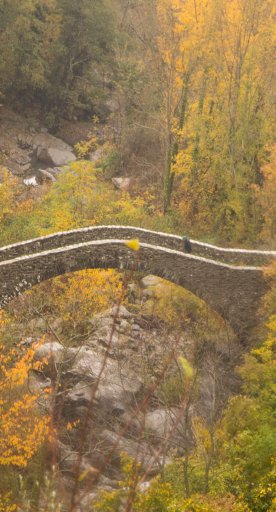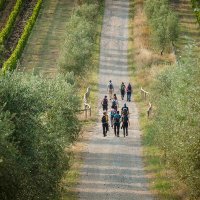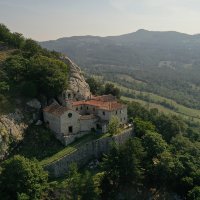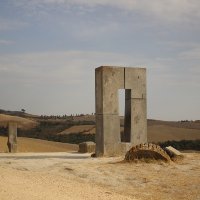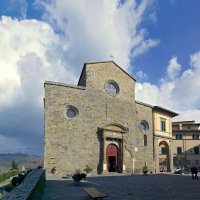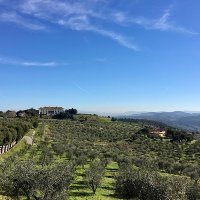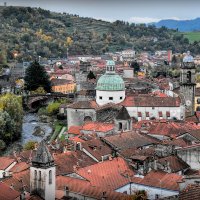What to eat on the Via Francigena
What and where you eat while walking through Tuscany on the ancient pilgrimage
Did you know that on average pilgrims like us on the Via Francigena walk over 25km a day? That is a lot of spent energy and used calories! Not surprisingly then food is an important part of life on the road – hikers are always looking for a chance to refuel.
But for pilgrims, mealtimes are not just that; they’re also a time to meet and share something with both locals and other pilgrims along the way.
This is particularly true of walking the Via Francigena in Tuscany, with its rich gastronomic history and friendly people. There are lots of places to eat along the route, and stopping for food gives a unique insight into both Tuscan and pilgrim culture.
Here we share our experiences of what and where we ate on the Via Francigena in Tuscany, breakfast, lunch and dinner.
-
1.Breakfasts at the ostelli
-
2.Café-bar lunches
-
3.The pilgrim menu dinner
Breakfasts at the ostelli

Ostelli are the special pilgrim accommodation along the Via Francigena, basic rooms or dormitories offered to pilgrims for one night. There can be quite a group there so in the morning pilgrims often come together and share breakfast – or go together to the nearest café for cappuccino and pastry.
One of our favourite breakfast stops with other pilgrims was at the Bagno Vignoni, eating cornetti alla crema by the side of the steaming thermal baths as pilgrims we knew arrived and ate with us – an amazing memory.
Café-bar lunches

One of the beauties of walking through Italy is the profusion of cafes – almost every town or village has one. For lunch we would often stop for a focaccia, oily and sprinkled with rosemary or stuffed with tomatoes.
Alternatively we would buy food the previous day and bring it with us, having impromptu picnics by shady rivers or overlooking those famous Tuscan rolling fields.
The pilgrim menu dinner

The pilgrim menu is the best pilgrim treat after a long day hiking. It’s a set menu -unique to each restaurant you find it in- that allows a pilgrim to sample a full Italian meal for a fraction of the usual price. It consists of primi (first course dishes), secondi (main course dishes), contorni (sides) and dolci (desserts), as well as including coffee and wine! Eaten at lunch or at dinner, all of this will be for one price – often as little as €10.
Pilgrim menus have a basic function of course: to fill you up! But more than that, a pilgrim menu allows you to experience something of the culture of Tuscany. They can be big shared affairs and are always different: one night we would be eating a hearty ribollita (a Tuscan bean soup) overlooking the banks of the river Magra in Aulla; another evening we were sharing big bowls of pappardelle pasta with a group of young pilgrims from Veneto. No two nights would ever be the same!
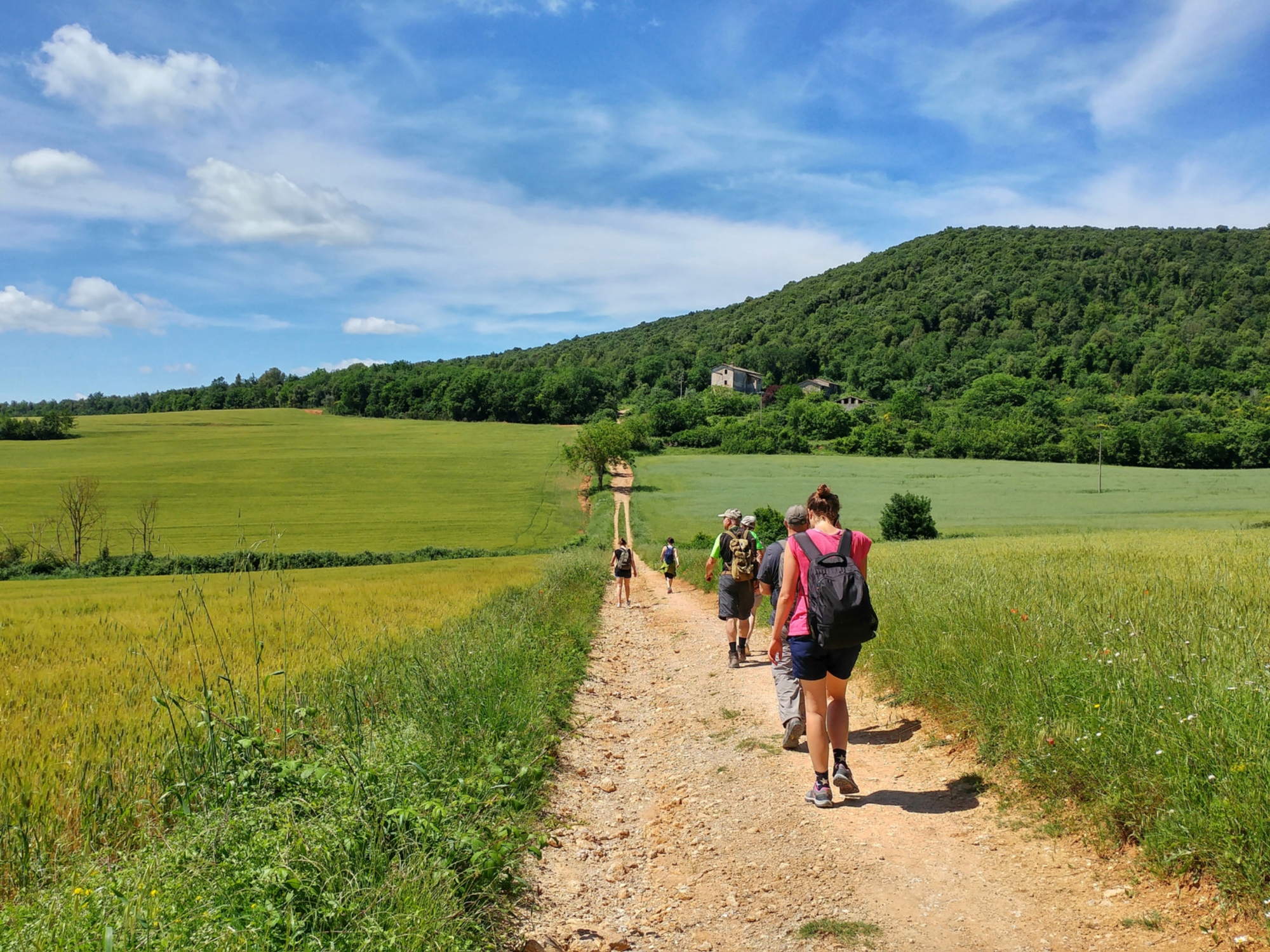
And that is what is so interesting about what and where you eat on the Via Francigena. There is no guidebook or rules to follow: everyone’s experience is unique and special. But what you share and with whom will stay in your mind forever.



